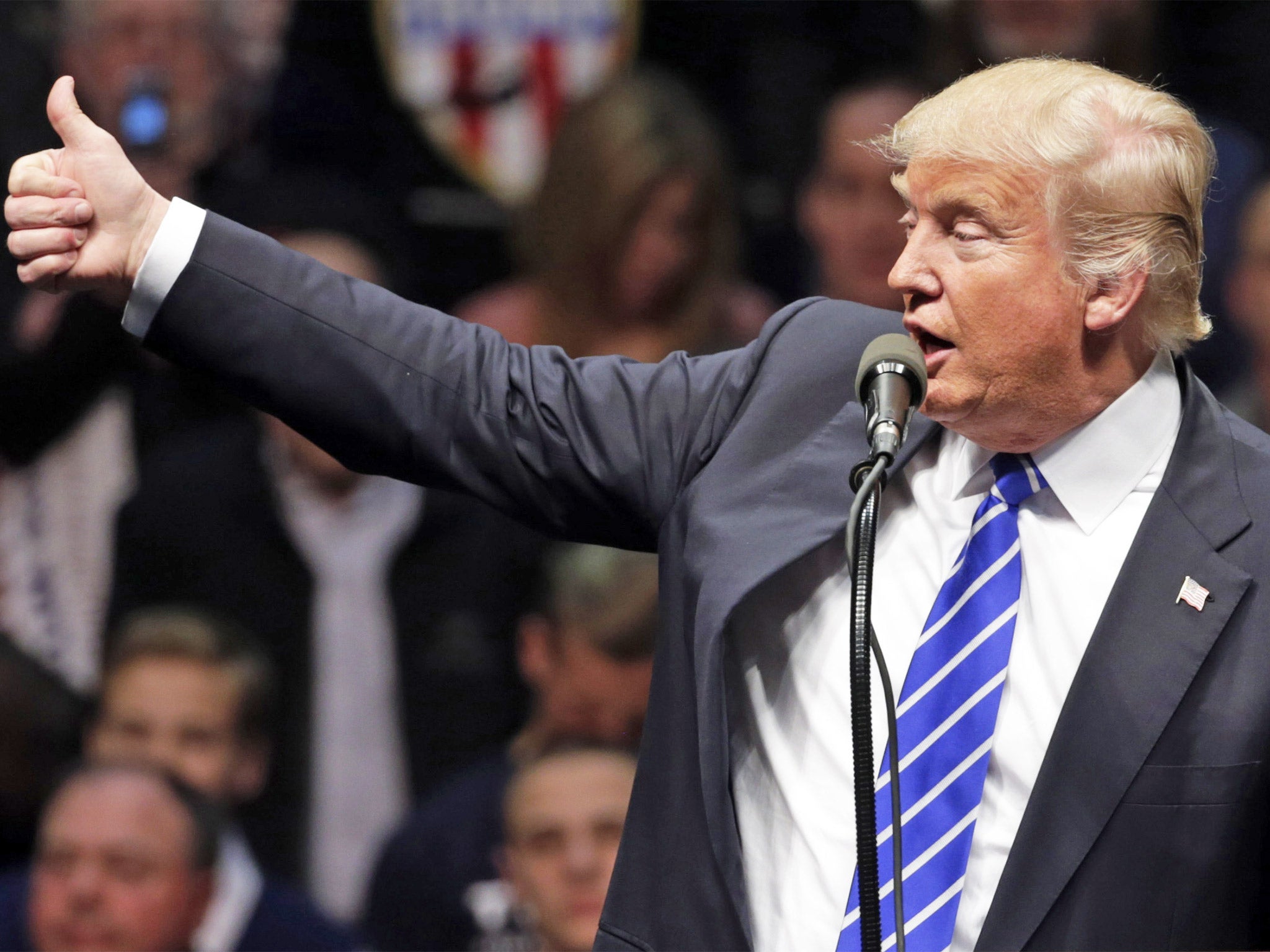US election campaign 'leading to widespread fear' and bullying in schools
The report said minority pupils are suffering anxiety and fear amid heated rhetoric

The abrasive and at times toxic rhetoric of the US election campaign is having a “profoundly negative impact” on children, a report has claimed.
It says the campaign is producing fear and anxiety among minority pupils, and inflaming racial and ethnic tensions in the classroom.
The Southern Poverty Law Centre said teachers also reported an increase in the bullying, harassment and intimidation of students whose races, religions or nationalities have been the verbal targets of candidates. Many students feared being deported.

“We’re deeply concerned about the level of fear among minority children who feel threatened by both the incendiary campaign rhetoric and the bullying they’re encountering in school,” said Richard Cohen, the group’s president.
“We’ve seen Donald Trump behave like a 12-year-old, and now we’re seeing 12-year-olds behave like Donald Trump.”
The survey - The Trump Effect: The Impact of the Presidential Campaign on Our Nation’s Schools - involved the questioning of around 2,000 teachers across the US. The group said the survey cannot be considered scientific, but said it provided an insight into the impact of the unusually heated election campaign.
The Republican primary campaign has been criticised for the anti-immigration rhetoric of many of the leading candidates, including Donald Trump and Ted Cruz.
Mr Trump has said he wants to build a wall along the US border with Mexico, deport Muslim immigrants to the US, and called Mexicans migrants “rapists and murderers”.
More than two-thirds of the teachers reported that students – mainly immigrants, children of immigrants and Muslims – have expressed concerns or fears about what might happen to them or their families after the election.
More than half have seen an increase in uncivil political discourse. More than third have observed an increase in anti-Muslim or anti-immigrant sentiment, the report said.
More than 40 per cent are hesitant to teach about the election.
While the survey did not identify candidates, more than 1,000 comments mentioned Donald Trump by name.
In contrast, a total of fewer than 200 contained the names Ted Cruz, Bernie Sanders or Hillary Clinton. More than 500 comments contained the words “fear,” “scared,” “afraid,” “anxious,” or “terrified” to describe the campaign’s impact on minority students.
“My students are terrified of Donald Trump,” wrote a teacher from a middle school with a large population of African-American Muslims.
“They think that if he’s elected, all black people will get sent back to Africa.”
An elementary teacher teacher in Oregon said her black students are “concerned for their safety because of what they see on TV at Trump rallies.” In Tennessee, a junior school teacher said a Latino child – told by classmates that he will be deported and blocked from returning home by a wall – asked every day, “Is the wall here yet?”
Join our commenting forum
Join thought-provoking conversations, follow other Independent readers and see their replies
Comments
Bookmark popover
Removed from bookmarks